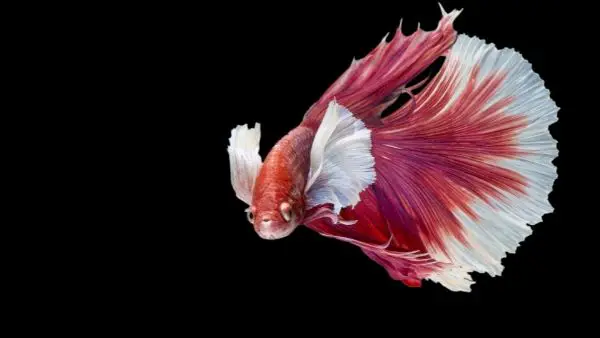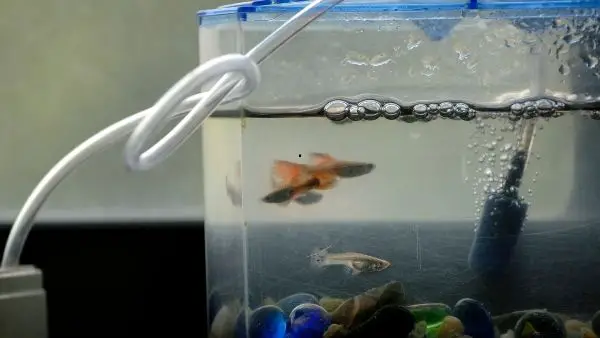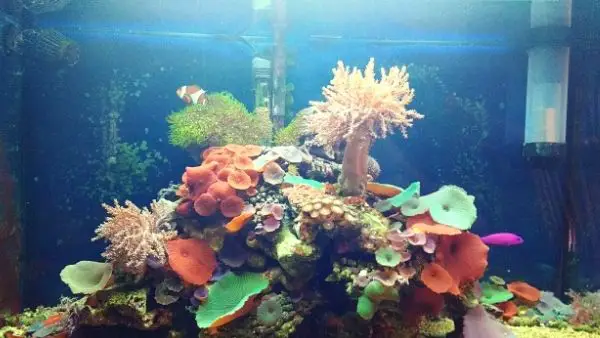Betta fish are beautiful, fascinating, and somewhat of an accessory to many people. Due to their appearance, and abundance of different types they have become pretty fashionable fish. Most people decide to keep them in small fish bowls without the use of equipment because this is how they are kept when you see them online and in stores. However, this is not exactly the right way to house or care for a Betta fish, they not only need a larger tank but also clean water!

So, does a Betta fish need a filter? The answer is a resounding yes, your Betta fish certainly does need a water filter. If you decide not to use a filter for your Betta tank, it will mean that you have to commit to several water changes each week, and for most people, this is not practical.
Do Betta Fish Need Filters?
Betta fish can certainly live without filters, but it isn't without hard work from the owner. You will need to clean and replace the water in your Betta tank several times a week as Betta fish and the Betta fish tank mates residing in your tank will produce waste after feeding, which will lead to bacteria build-ups and other toxins.
Filters will remove these waste products from your fish tank without any work from the owner. Unfortunately, many people do not realize that by keeping your Betta fish in a small, fashionable bowl or jar you are significantly reducing their lifespan. They become far less active and stimulated, which leads to an incredibly unhappy and unhealthy siamese fighting fish.
Betta fish have an incredibly unique "labyrinth organ", which allows them to breathe air, meaning that they can survive in low oxygen environments. Unfortunately, this is a reason for a lot of people to neglect them. The quality of your Bettas water should be considered as much as any other fish you own! Additionally, common tank mates to Betta fish, like Neon Tetras do not possess these additional organs that allow air breathing.
Betta Fish Filter Benefits
As mentioned previously, Bettas are often unfairly kept in bowls and jars with no filtration. Using a filter in your Betta tank comes in an abundance of awesome benefits.
Eliminates The Risk Of Overfeeding
Overfeeding your fish and in this case, Betta fish is an extremely common occurrence among hobbyists. Overfeeding is not only unhealthy for your fish as they will not be able to tell you that they are full up, but it leads to a much dirtier tank, much quicker.
Using bottom feeders to clean up the bottom of your tank is always a good option, but the best way of ridding your tank of excess food is to use a filter. If you don't use a filter, expect to be conducting water changes in your tank far more regularly.
Eliminates Excess Fish Waste
After eating, fish release chemical waste into the tank, such as ammonia. Changing your tank water on an extremely regular basis is super necessary for ensuring that your tank does not suffer a bacteria build-up that can be harmful to your fish.
Additionally, installing an aquarium filter will mean that you no longer need to worry about any excess fish waste.
Cleaner Tank And Better Hygiene
Not only will a filter make your tank much cleaner and look great, but it will rid any unwanted odors generated by ammonia and other impurities from fish waste.
Less Regular Water Changes And Tank Cleaning
Cleaning your tank and regularly changing the water will be a thing of the past if you acquire a Betta fish tank filter. Changing the water in large or even small tanks is time-consuming and can be a stressful process, and having to do it multiple times a week is a serious drag, taking the joy out of fish keeping.

With a filter, you will not have to clean your tank or water anywhere near as frequently, which is great for spending that time on other important things to benefit your Betta Fish.
Choosing The Right Betta Fish Filters
The following considerations must be taken into account when you are deciding upon Betta fish filters:
- In their natural habitat, Betta fish reside in water areas that have slow-moving water, such as, rice paddies, swamps, ponds, and slow streams. Because of this, they are pretty bad swimmers, so you should definitely purchase a filter that isn't very powerful, resembling their natural environment.
- You must consider how big the tank is that you keep your Betta fish in. If your tank is 3 gallons (14 liters) or more, then you either shouldn't get a filter as it is too small or simply get a larger tank to accommodate the filter.
What Are The Different Types Of Filters?
Water filtration works by removing contaminants from water, they can either be in solid, chemical, or mineral forms. Due to there being 3 different types of contaminants, there are 3 different types of water filters to counteract each type - mechanical, biological, and chemical filters.
Mechanical Filtration
Mechanical filters work by removing solid floating particles and bacteria from the water in your fish tank. These come in the forms of uneaten food, fish excretion, and other particles you would likely find floating around a fish tank.
This type of filter is incredibly common with beginner hobbyists, using either sponge, pads, or filter wool as the medium in the filtration device. Depending on how powerful the filtration needs to be, they can either be fine or coarse, with the finer filtering out the smaller particles than the coarser.
Types of mechanical filters:
- Pads or sponges are included in canister filters and also some power filters.
- Box filters use floss or filter wool and are not used as much anymore. Be wary, changing this filter is a rather unpleasant sight.
- Combo cartridges are typically used to combine both mechanical filtration and chemical filtration into one. Some can be opened up and the cartridge can be easily replaced, whereas others need to be fully replaced after some time.
Biological Filtration
Biological filters will produce good bacteria, which transforms nitrate and ammonia into much less toxic nitrates. Classic Betta fish waste is turned into nitrate by the beneficial bacteria, the process is named the nitrogen cycle.
Filter media for the biofiltration is designed to specifically accept large amounts of beneficial bacteria. They are designed with a larger surface area than most filters as it allows beneficial bacteria to grow in large numbers. Also, when you are cleaning your biological filter, try to avoid washing it with tap water as the water will remove any of the live bacteria living on it.

Chemical Filtration
Chemical filters are rather self-explanatory, they will remove chemicals from your fish tank. Despite popular belief, chemical filters are one of the most important when it comes to filtrations for your tank.
There are many chemicals residing in your tank that you probably don't even know about, and they can cause serious harm to your fish. In some, worse case scenarios, you can leave a tank full of chemicals for too long and your fish will end up dying.
Heavy metals and other dangerous soluble compounds will slowly but surely poison your fish. Fortunately, chemical filtration will remove the unwanted chemicals and other harmful compounds in your water.
Here are all the different types of aquarium filters. Some are more popular than others, with sponge, canister, power, undergravel, and fluidized bed filters being the most commonly used.
- Sponge Filter - a basic filter that features an air pump, sponge filter, and an airline to connect the two.
- Canister Filter - a plastic container that is kept outside of the tank, drawing in water through a tube using an electric pump.
- Power filter - impeller-powered filters that will hang on to the back of your tank. They will typically work by removing water from your tank via a tube that contains many different types of filtration media. The clean, filtered water is then released back into the tank.
- Fluidized bed filter - a cylinder or canister that hangs off the back of your aquarium and is connected to a pump that presses water through the filter. The filter contains sand which is used to remove bacteria.
- Undergravel filter - an older-style filter that is still very effective. The only real drawback to this filter is that it can damage plants in your tank, and Betta fish love having plants as hiding spots. They consist of a large porous plate that is placed at the bottom of the tank and water is then drawn up the tube by a motor at the top,
Conclusion
So, do Betta fish need a water filter? Yes, if you want to reduce time spent constantly changing dirty water, and you want to alleviate the chance of your fish dying or becoming ill, then 100% get yourself a water filter for your Betta fish!
Additionally, you should now know a lot more about filters and the importance of them for other fish too, not just the famous Bettas.
